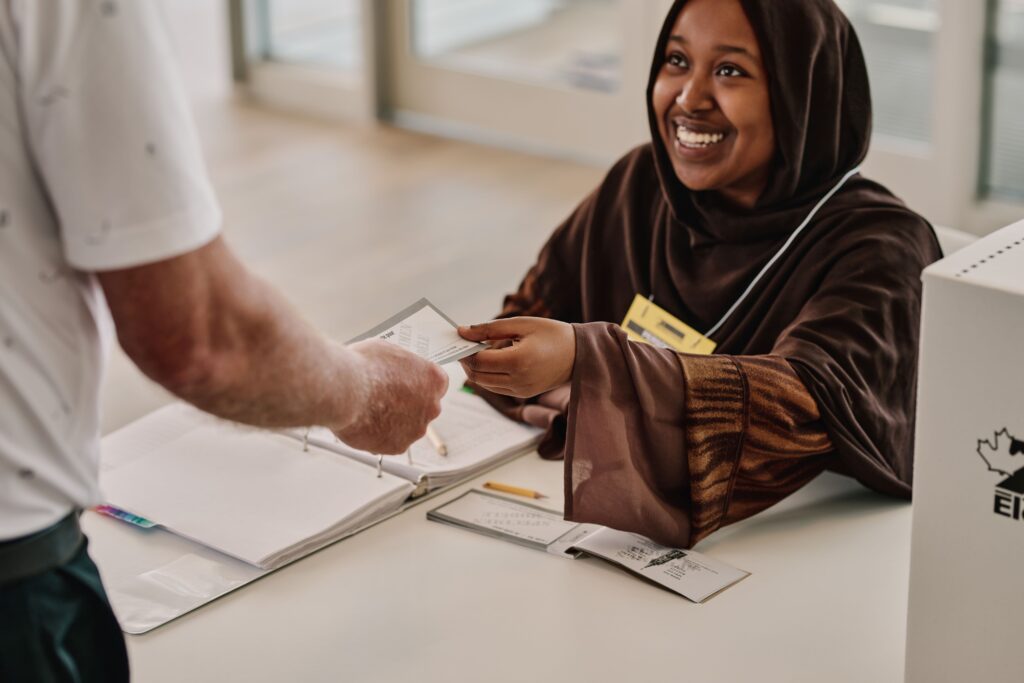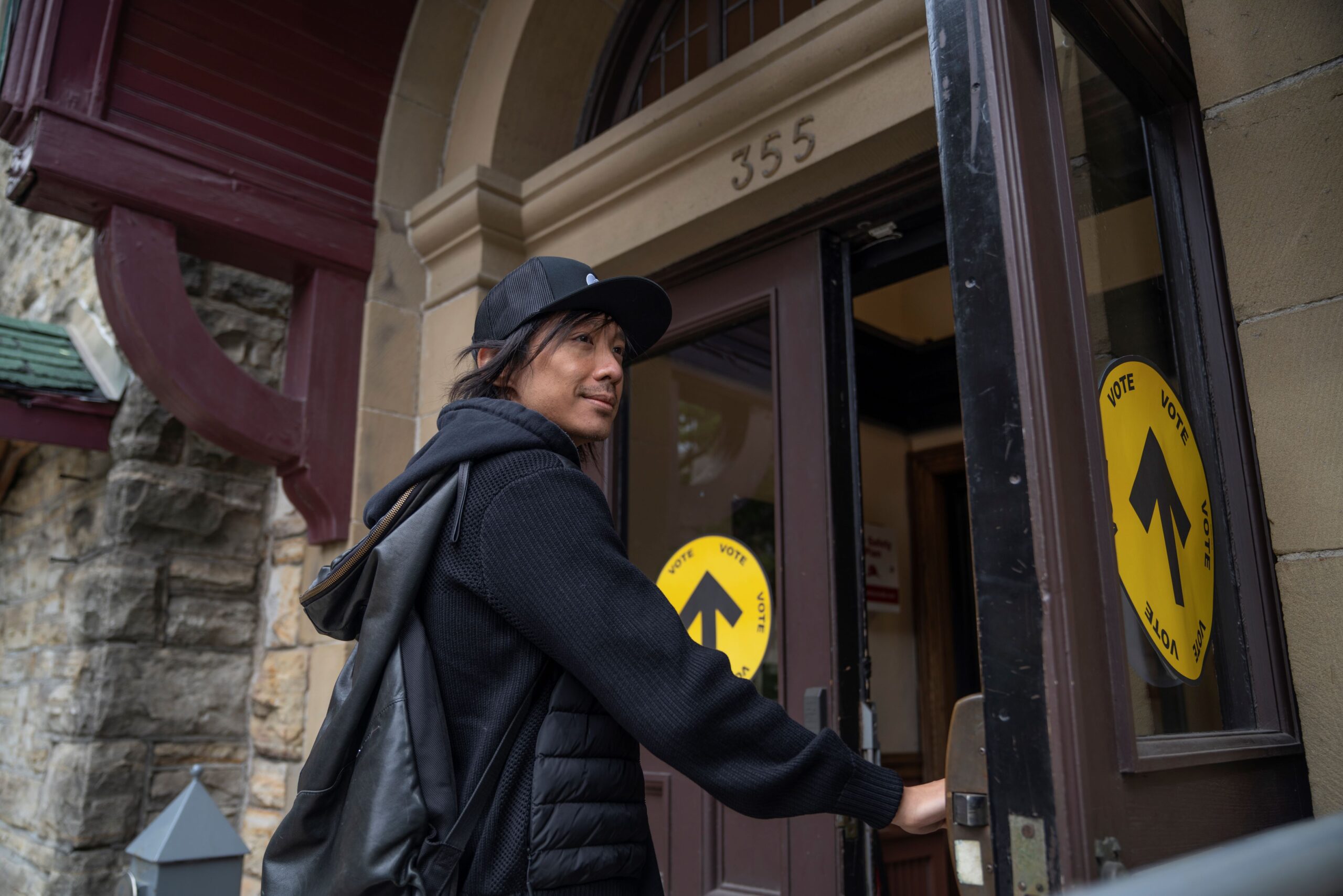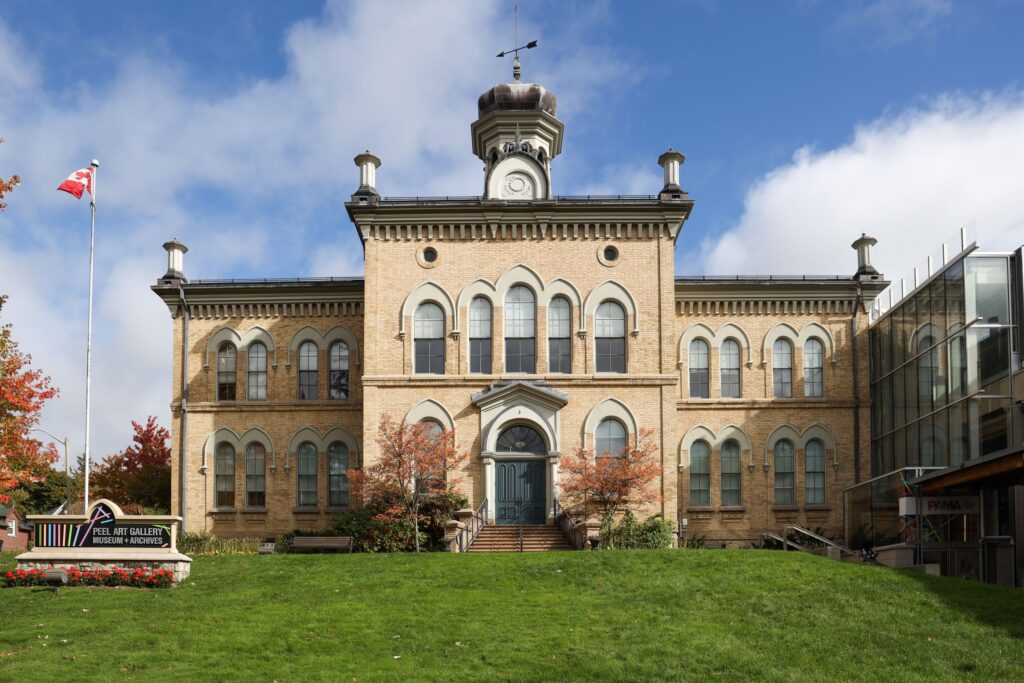This blog was produced in collaboration with Elections Canada.
All Canadian citizens have rights and responsibilities, and this includes voting in elections. Canada asks its citizens to actively participate in decision-making through regular elections. Because democracy goes beyond politics, it connects to values like representation and equality, while directly impacting your children’s education system, our universal health care and so much more.
As a new Canadian citizen, you may have many questions about the voting process. Can I vote in elections? How do I vote? What do I need to know? We have all the answers to all your questions! And as Canoo, we’re also here to provide you with incredible experiences that are highly discounted or even free. Download Canoo to access these deals today.
Who Can Vote
Only Canadian citizens 18 years or older on election day are eligible to vote. You must also be registered and prove your identity and address.
Registering to Vote
Before you can vote in a federal election in Canada, you must be registered on the National Register of Electors – a database of Canadians who are eligible to vote. It’s good to be on this list because once the federal election is called, you’ll receive a voter information card that tells you when and where you can vote.
There are lots of ways to register before and during an election. Being registered before makes the voting process easier. But remember, you can always register when you cast your vote.
Online Registration
Elections Canada provides an online voter registration tool that allows eligible citizens to easily register. You can also update your personal information including your current address. As an example, you may have moved since the last election and now belong to a different riding or voting region.
In-person Registration
You can also find various in-person registration options once an election is called. Citizens can register at any Elections Canada office by the Tuesday before election day, 6 p.m. or at their assigned polling station when they go to vote.
You can also register by mail before an election is called. Click here to here to find out how.
Voting on Campus
Elections Canada plans to reintroduce the Vote on Campus program in the next general election, with approximately 120 campuses expected to participate. The program allows eligible voters, particularly students living away from their home ridings, to vote by special ballot at temporary campus voting offices.
The offices will be open for 4 days about 2 weeks before election day. While primarily designed for students, any eligible Canadian citizen aged 18 or older can vote at these locations.
The program has evolved since its 2015 pilot project, which only served 39 campuses and resulted in over 70,000 votes cast. By 2019, it had expanded to 109 campuses across 86 electoral districts, with more than 110,000 electors participating.
This effort is part of a larger strategy to address the historically lower youth voter turnout by making voting more accessible to young electors who often face barriers, such as being away from home.
Protecting our Elections
Regardless of how Canadians choose to vote, there are safeguards in place to make sure that only eligible individuals vote and that they vote once for a candidate in the riding where they are registered.
Elections Canada takes steps to ensure openness and accountability in federal elections. Keeping our democracy strong means making sure Canadians trust the voting process. Here are just a few examples of the steps Elections Canada take to protect our elections:
1. Checking Voter ID
As we’ve mentioned, voters need to prove who they are and where they live to register and vote. They can do this in various ways, like showing a Canadian government-issued card with their photo, name, and current address. Another option is presenting two separate documents, such as a health card with their name and a bill with their name and address.
Click here for more information about IDs that you can use to register and vote.

2. At the Polling Stations
At the polling station, trained and paid election workers serve voters. These workers follow specific procedures in compliance with the Canada Elections Act and keep records of everything they do. Only authorized people are allowed inside the polling place.
Are you interested in working as an election worker during the next federal election? Click here.
3. Keeping Your Vote Secret
When you vote, the process is entirely confidential. An election worker hands you a folded ballot. You, then, mark your choice behind a privacy screen. After refolding the ballot to keep it secret, you return it to the election worker. They verify details, remove the counterfoil, and place the folded ballot in the ballot box, ensuring no one knows how you voted. It is illegal to break the secrecy of the vote, including by taking pictures of a marked ballot. This prevents people from being intimidated or influenced to vote a certain way.
Protecting democracy is an ongoing responsibility that requires the active participation of citizens and dedication to upholding principles. As we navigate future elections together, preserving democracy is crucial for Canada’s success and the well-being of its entire population.
Click here to learn more about Election Integrity and Security.
Are you interested in running in an election? Click here to learn more.





